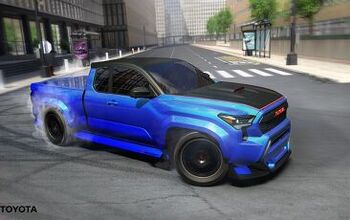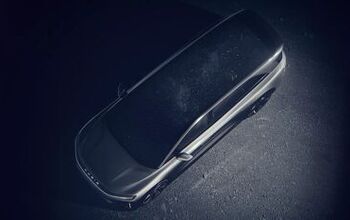Honda Tells Dealers: Build CNG Fueling Stations, And They Will Come
This is the Honda Civic GX, a vehicle that runs on propane and propane accessories compressed natural gas. Despite the Civic GX’s title as one of America’s “ Greenest Vehicles“, the Civic GX is pricey, and CNG refueling stations are few and far between – apparently there are only 830 in the entire United States, with not all of them open to the public. Honda wants to change that – but it wants dealers to bear the costs, monetary and otherwise, of building new fueling outlets.
Honda’s Steve Center, in charge of environmental business development, wants to put CNG fueling stations in at least two dealerships in California this year. Center told Bloomberg
“If the dealer had a fueling station, it would really reduce some of that concern for the customer,” Center said at Honda’s U.S. headquarters in Torrance, California. “It’s not our place to create infrastructure, but it’s a chicken-and-egg situation and we’re going to have to nurse that egg along.”
So, it’s not Honda’s place to build infrastructure – but the dealers can go ahead and do it. The costs of the project weren’t disclosed, but off the bat there appears to be some value in installing these stations; getting customers to keep coming back to the dealer can help them build relationships, sell aftermarket parts, servicing other vehicles and build good will among customers.
Honda’s pitch appears to be in the beginning stages, but one can guess how they’re going to market the CNG Civic; great fuel economy, from a clean, domestic energy source that’s also free from serious range anxiety (the Civic GX gets about 225-250 miles per tank). In addition to the dealer filling stations, there are home units available too – but they take about 8-10 hours to fill the car up (since the gas isn’t pressurized like commercial stations) and cost about $3,400 for the unit alone.
The days of Jim Cardiges and kickbacks are long over, but there’s no reason to think that there may be positive incentives to signing on with the program. Maybe there will be a better allocation of cars. Maybe warranty claims would get paid quicker. Maybe co-op advertising campaigns would get a bigger share of their costs picked up by Honda. For now, this looks like a test program, and Honda will be helping dealers get financing, incentives and approval from local governments. Yesterday’s initial article on natural gas vehicles (yes, including LPG/Propane as well as CNG vehicles) had great commentary from the B&B, particularly on the drawbacks of natural gas vehicles. I’m confident that the increasing price of gas along with the eminently marketable angle of a domestic clean energy source means we’ll be hearing a lot more about natural gas in light vehicles, regardless of the fuel’s merits.
More by Derek Kreindler
Latest Car Reviews
Read moreLatest Product Reviews
Read moreRecent Comments
- Theflyersfan The wheel and tire combo is tragic and the "M Stripe" has to go, but overall, this one is a keeper. Provided the mileage isn't 300,000 and the service records don't read like a horror novel, this could be one of the last (almost) unmodified E34s out there that isn't rotting in a barn. I can see this ad being taken down quickly due to someone taking the chance. Recently had some good finds here. Which means Monday, we'll see a 1999 Honda Civic with falling off body mods from Pep Boys, a rusted fart can, Honda Rot with bad paint, 400,000 miles, and a biohazard interior, all for the unrealistic price of $10,000.
- Theflyersfan Expect a press report about an expansion of VW's Mexican plant any day now. I'm all for worker's rights to get the best (and fair) wages and benefits possible, but didn't VW, and for that matter many of the Asian and European carmaker plants in the south, already have as good of, if not better wages already? This can drive a wedge in those plants and this might be a case of be careful what you wish for.
- Jkross22 When I think about products that I buy that are of the highest quality or are of great value, I have no idea if they are made as a whole or in parts by unionized employees. As a customer, that's really all I care about. When I think about services I receive from unionized and non-unionized employees, it varies from C- to F levels of service. Will unionizing make the cars better or worse?
- Namesakeone I think it's the age old conundrum: Every company (or industry) wants every other one to pay its workers well; well-paid workers make great customers. But nobody wants to pay their own workers well; that would eat into profits. So instead of what Henry Ford (the first) did over a century ago, we will have a lot of companies copying Nike in the 1980s: third-world employees (with a few highly-paid celebrity athlete endorsers) selling overpriced products to upper-middle-class Americans (with a few urban street youths willing to literally kill for that product), until there are no more upper-middle-class Americans left.
- ToolGuy I was challenged by Tim's incisive opinion, but thankfully Jeff's multiple vanilla truisms have set me straight. Or something. 😉


































Comments
Join the conversation
I saw a hydrogen fuel cell powered Civic parked by the side of the road in Japan in 2004. Are Honda still working on hydrogen, or was it a dead end?
Hmm - a 300-volt Li-ion battery pack, or a 3,500 PSI fuel tank? Since I'm more familiar with electrical safety, I'll go with the Energizer Bunny.